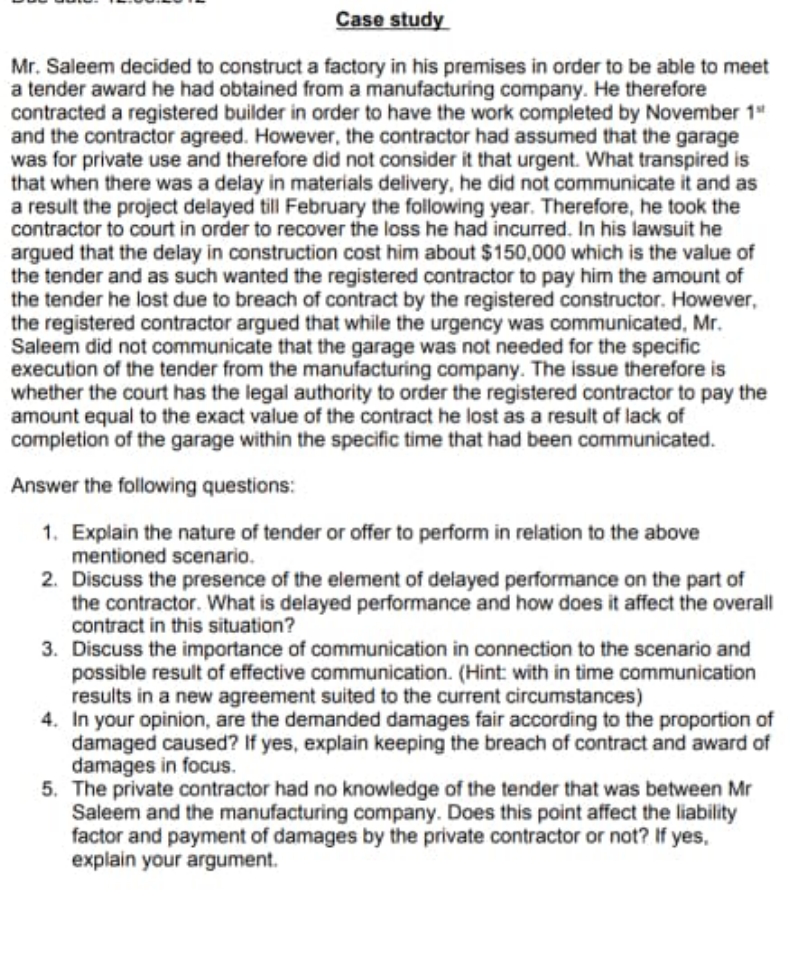this case study about contractual rights . delayed performance and calculation
Case study Mr. Saleem decided to construct a factory in his premises in order to be able to meet a tender award he had obtained from a manufacturing company. He therefore contracted a registered builder in order to have the work completed by November 1" and the contractor agreed. However, the contractor had assumed that the garage was for private use and therefore did not consider it that urgent. What transpired is that when there was a delay in materials delivery, he did not communicate it and as a result the project delayed till February the following year. Therefore, he took the contractor to court in order to recover the loss he had incurred. In his lawsuit he argued that the delay in construction cost him about $150,000 which is the value of the tender and as such wanted the registered contractor to pay him the amount of the tender he lost due to breach of contract by the registered constructor. However, the registered contractor argued that while the urgency was communicated, Mr. Saleem did not communicate that the garage was not needed for the specific execution of the tender from the manufacturing company. The issue therefore is whether the court has the legal authority to order the registered contractor to pay the amount equal to the exact value of the contract he lost as a result of lack of completion of the garage within the specific time that had been communicated. Answer the following questions: 1. Explain the nature of tender or offer to perform in relation to the above mentioned scenario. 2. Discuss the presence of the element of delayed performance on the part of the contractor. What is delayed performance and how does it affect the overall contract in this situation? 3. Discuss the importance of communication in connection to the scenario and possible result of effective communication. (Hint: with in time communication results in a new agreement suited to the current circumstances) 4. In your opinion, are the demanded damages fair according to the proportion of damaged caused? If yes, explain keeping the breach of contract and award of damages in focus. 5. The private contractor had no knowledge of the tender that was between Mr Saleem and the manufacturing company. Does this point affect the liability factor and payment of damages by the private contractor or not? If yes, explain your argument







